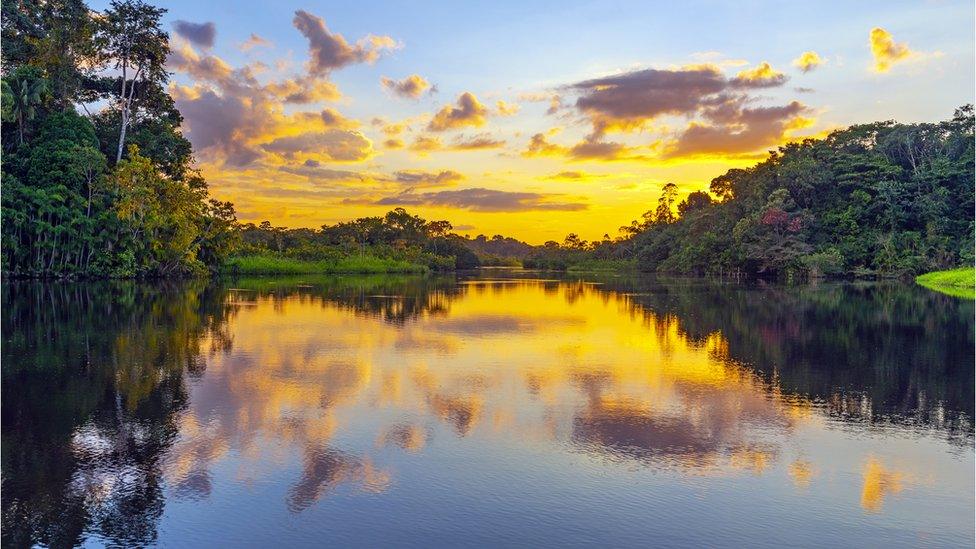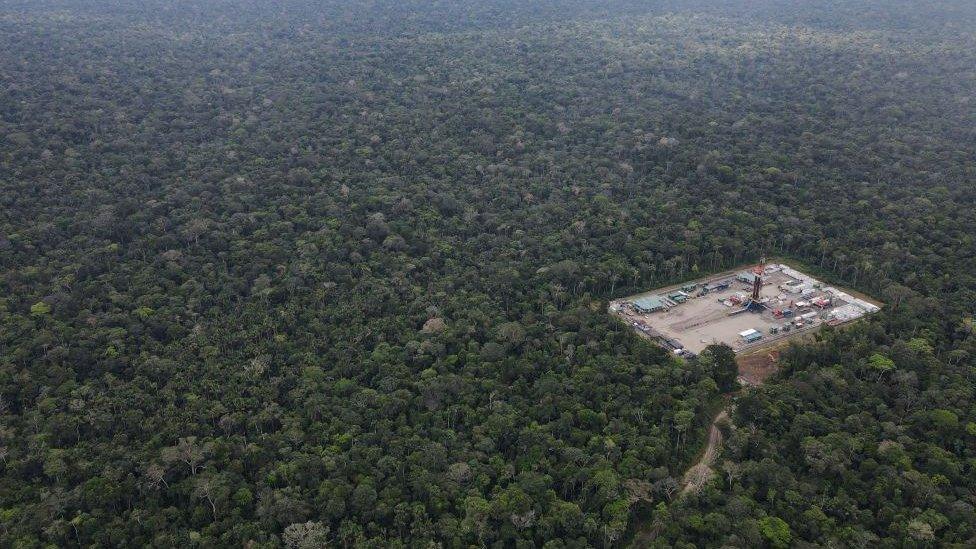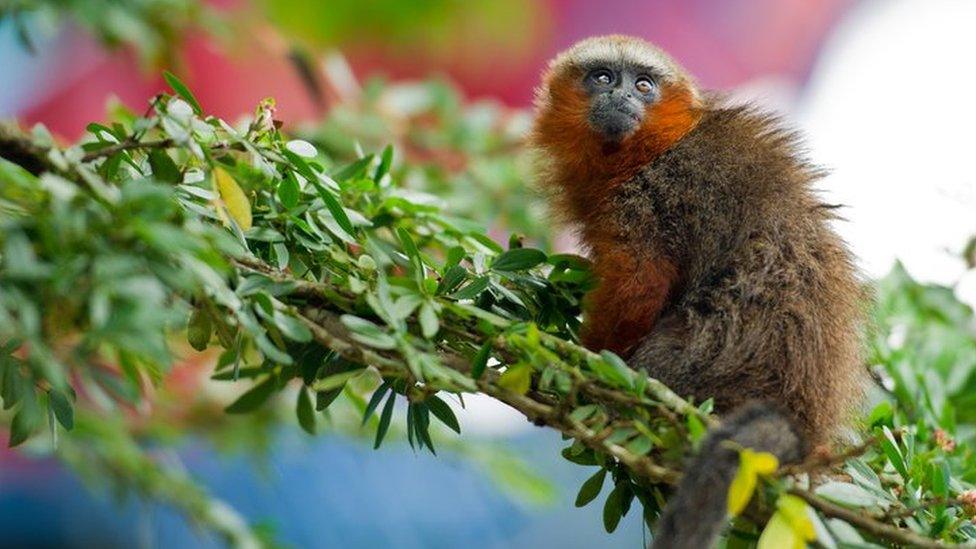Ecuadorians vote to stop oil drilling in Amazon's Yasuni National Park
- Published
- comments

The people of Ecuador have voted to end oil drilling in a protected area of the Amazon.
The decision means the state-owned oil company Petroecuador will have to stop its operations in Yasuni National Park, one of the most biodiverse regions in the world.
Nearly 60 per cent of voters supported the ban in the country's historic referendum on 20 August.
Indigenous leaders and environmental groups have welcomed the news, but the government warned the ban would cost the country about $16 billion dollars in lost income in the next 20 years and could potentially expose the area to illegal mining and deforestation.
What's happened?

Drilling for oil started in Yasuni National Park in 2016
Yasuni National Park is located in the north-east of the country and is mostly made up of dense, tropical forests and various smaller rivers.
It is one of the richest areas on the planet for the diversity of many types of trees as well as bird, mammal, amphibian and bat species.
It's home too to plenty of endemic species - that means species only found in that area, and nowhere else in the world.
According to Ecuador's environment ministry, a single hectare of the Yasuni has 650 species of trees, as well as hundreds of species of animals.
But Ecuador's largest reserve of crude oil can be found beneath the Yasuni park and drilling in one area of the national park began in 2016, following years of debate.

The site produces some 60,000 barrels of oil a day - about 12% of Ecuador's total oil production.
But environmental and indigenous groups say Ecuador needs to protect the Amazon and its communities, as well as moving away from fossil fuels.
After the result was announced, Juan Bay, president of the Waorani Indigenous community, said: "We have saved the greatest biodiversity and we have saved the communities in voluntary isolation."
However, Energy Minister Fernando Santos described the decision to stop drilling as "a very serious blow to Ecuador's dollarized economy, which depends on crude oil, its main export".
